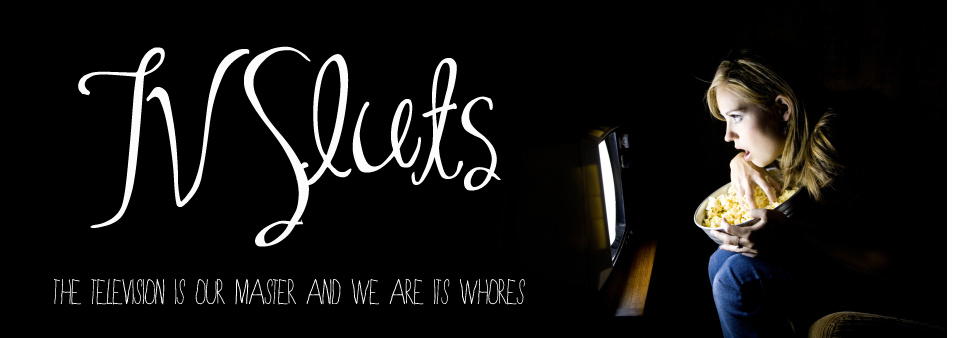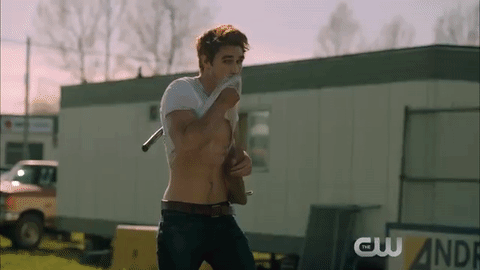 |
| Marvel's Defenders: Gotta catch 'em all. |
1) What's this show about?
It's the story of Danny Rand (Finn Jones), a billionaire orphan who ended up stranded at a trans-dimensional Tibetan monastery and learned how to turn his fist into a steel-door denting weapon. Now he's back in New York, and vigilantism will occur.
No, it's really not more complicated than that. To reiterate: billionaire orphan rescued from fateful plane crash by monks, develops magic martial arts punching power, comes back to New York, fights ninja-themed crime.
2) How ethnically insensitive is Iron Fist?
There's been a lot of controversy about this issue, so I thought I might get this one out of the way early. The portrayal of Asian ethnicity and culture in Iron Fist is, I feel, what would count as "really good for 1987." There's a notable lack of East Asian folks behind the camera (maybe one director, and I'm not including the RZA, who did direct an episode, but yes, I am aware the Wu-Tang Clan are not, in fact, from Asia) which comes out in the treatment of settings, characters, etc., even though there's a definite effort not to be completely stereotypical.
What I mean by the above is that the show is clearly "Asian through non-Asian people's eyes." That's not the worst crime against humanity, but with a big budget product with years of development, it's not a great look, and I hope Marvel tries harder in the future.
What I mean by the above is that the show is clearly "Asian through non-Asian people's eyes." That's not the worst crime against humanity, but with a big budget product with years of development, it's not a great look, and I hope Marvel tries harder in the future.
One thing that tweaks me just a little, though, is that Iron Fist gets so much flak because the main character learns martial arts in a trans-dimensional Tibetan monastery but is not Asian, whereas Daredevil hits all of the same major plot points in a more insensitive manner, but we give it more of a pass, possibly because it's so much worse at cultural sensitivity we don't even see the appropriation. Here's a chart:
This is not to absolve Iron Fist of its sins, but to say that, if we call out Iron Fist but just sort of let Daredevil slide, we're basically just reserving sensitivity to Asian culture for explicitly Asian-branded shows.
Now, on top of this, Iron Fist's treatment of women is a significant improvement over Daredevil. Most notable is that the Iron Fist for much of the show rolls in a team of three, that three usually being Colleen Wing (Jessica Henwick) and Claire Temple (Rosario Dawson). Much of the time, the Iron Fist is planning to do something impulsive and stupid, and Claire and Colleen tell him, "no Danny, that's impulsive and stupid," and guess what? That's treated by the show as good advice, and half the time the Iron Fist actually listens. That's right, a superhero show where the white guy superhero doesn't just blow off or become emotionally unavailable to the women in his life when they tell him not to do something dumb! Also he doesn't lie to them all the time!
3) Does that mean Iron Fist passes the "Bechdel Test"?
Sort of!
The problem is that, often, two women are talking about a man in a non-romantic way. For example, there's a long scene where Colleen and Claire are looking after an unconscious man with a sucking chest wound, and arguing over whether it's safe to bring him to the hospital. For the Bechdel Test, does that count as a conversation "about a man"? Other examples of where this is complicated:
- Claire and Colleen talking with Danny over whether or not to kill a particular man
- Colleen and Jeri discuss some legal trouble that Colleen and Danny have gotten themselves into
- Two members of the Hand, both women, where one is upbraiding the other for being disloyal to the organization due to not following the orders of a male superior.
So, yes, women are far more visible in Iron Fist than in Daredevil; they're clearly half of society and in a wide variety of roles. But, as we've established, being better than Daredevil is kind of a low bar.
 |
| Average number of actresses with lines in a scene with Joy Meachum (Jessica Stroup). |
If neither Claire or Colleen are in the scene, the likelihood of two women having more than a line in a scene drops logarithmically. Joy Meachum (a childhood friend of Danny's and major corporate power player) operates in a world where the only other women, except very occasionally Jeri Hogarth, are assistants or less senior board members with few if any lines. If it's not to Claire or Colleen, I don't think Madame Gao ever speaks directly to a woman in this show.
4) So, apart from that, how's the show?
Perfectly acceptable. If you are willing to watch Marvel's Agents of SHIELD for an entire 26-episode season without shutting it off mid-way through saying that it's "too comic-booky," then you'll find Iron Fist perfectly diverting.
 |
| Shirtless Finn Jones. You're welcome. |
The big problem with Iron Fist is that Jessica Jones and Luke Cage were bigger than just a comic book punchy-punchy story; they dealt with being a comic book character in a world with sexism or racism; a world where punching through doors and not worrying too much about being shot wasn't sufficient to protect someone from man's inhumanity to his fellow man. Iron Fist is not that deep, and doesn't mean to be. He's a guy who makes his fist glow and punches ninjas with it. I mean, if you want it to be a story about white privilege, he basically buys his way out of being arrested at least once on the show. But that's so not the point Iron Fist is trying to make.
Pacing is decent, acting is pretty good (great performance from Carrie-Ann Moss reprising her Jessica Jones role as attorney Jeri Hogarth).
Characterization is a little spotty. Danny Rand has some PTSD and anger issues, but they don't manifest consistently or always plausibly. The Meachum sibilings Joy and Ward (Tom Pelphry) -- the chief corporate officers of Rand Enterprises, the company that gives the Iron Fist his billionaire fortune -- keep switching sides between "good," "self-interested," and "evil" in ways that seem to fit the plot more than any sort of organic development.
The martial arts scenes are some of the best I've seen. One of my complaints about a lot of shows (CW shows like Arrow especially) is that the fight choreography does not distinguish between when a superhero takes on a ninja master and when he/she takes on a guy who has no training at all except in the duration of the fight. Iron Fist does. When the Iron Fist takes on less-well-trained people, he moves like water through them. It's only on the better adversaries that it even looks like it's hard for him.
The martial arts scenes are also entertaining when they're set up to pay homage to various Hong Kong action films. Keep an eye out!
Also, one of the better comic show depictions of a functional drug addict, surprisingly.
5) Does there happen to be a minor plot point that depends on a legal controversy that makes you dumber about the law?
Why yes, there is!
Midway through the season, there's a plot point about whether a Rand Enterprises plant on Staten Island is causing cancer. 15 people in a half-mile radius around the plant have gotten cancer. And there's a legal action by the cancer sufferers against Rand.
I won't tell you how the plot point is resolved, but the big problem with this plot point is that key facts as to whether this case is meritorious are left vague so the main characters can have a moral dilemma about it. The writers wanted some characters to say "no money for you!" without seeming totally heartless, but also didn't want to go so far as to actually show that the plaintiffs didn't have a case.
The problem is, it's really mostly one way or another depending on the science.
I used to do toxic torts, so I know these cases and the way they're litigated pretty well. In order for a plaintiff to actually have a chance of winning in court, the plaintiffs need more or less three things:
- biological plausibility - science that shows that the Rand plant emissions could cause the cancer in question. For example, I worked with estrogenic chemicals alleged to cause breast and reproductive cancers. Those same chemicals weren't linked to, say, lung cancer or leukemia. Benzene is linked to blood cancers but not, say, prostate cancer.
- science showing level of risk - If I increase your risk of cancer by .0001%, should I be liable if you get cancer? Courts in America basically have said that I have to at least double your risk of cancer before there's liability. So the Rand plant emissions would have to be scientifically shown to double or more the risk of whatever cancers they cause.
- elimination of other causes - plaintiffs can't have been exposed to large amounts of other carcinogens, have bad family histories of cancer, etc. and expect to prove that the Rand plant caused their cancer. This is super-problematic for the linked Marvel universe as we know at least the following fictional environmental issues:
- New York suffered an attack by alien robots that probably were made of toxic metal and almost certainly released a crap-ton of ionizing radiation.
- And do you know where NYC dumps debris from stuff like "the Incident"? The Fresh Kills landfill on Staten Island, probably somewhere near the Rand plant given zoning laws. That's where all the toxic metal shards and radioactive monster corpses went if they were too mangled for SHIELD, the U.S. government, or Tony Stark to grab for study.
- We know from Agents of SHIELD that a teratogenic substance -- Terrigen -- has been introduced into the American food supply through contaminated fish.
Now, if we actually knew how close plaintiffs were to proving any of the above, the moral dilemma becomes less fuzzy, it's either, "they probably were poisoned by the plant, but we have better-paid and better-sounding experts so we can roll the dice and bury them with endless litigation" or "these plaintiffs have bad luck but they almost certainly didn't get cancer from the Rand plant any more than they got it from vaccines."






